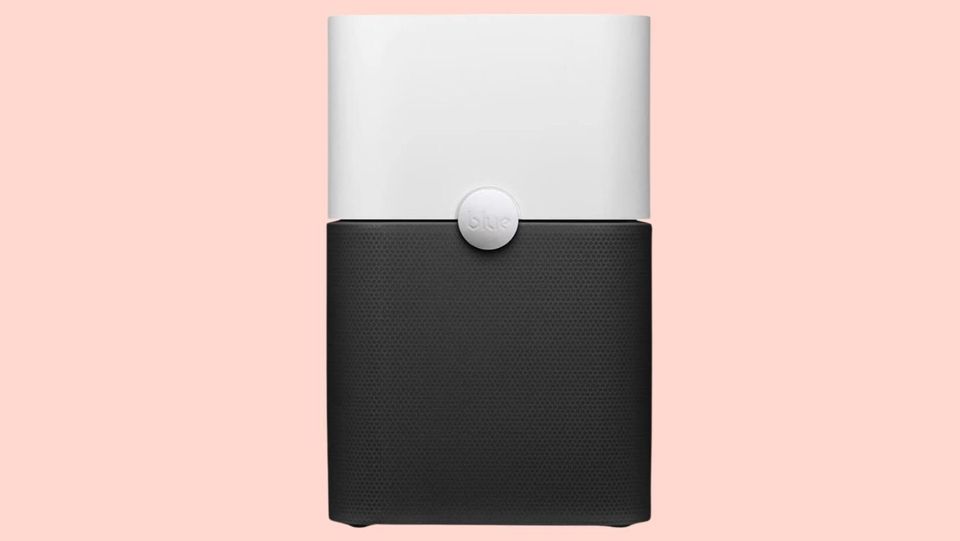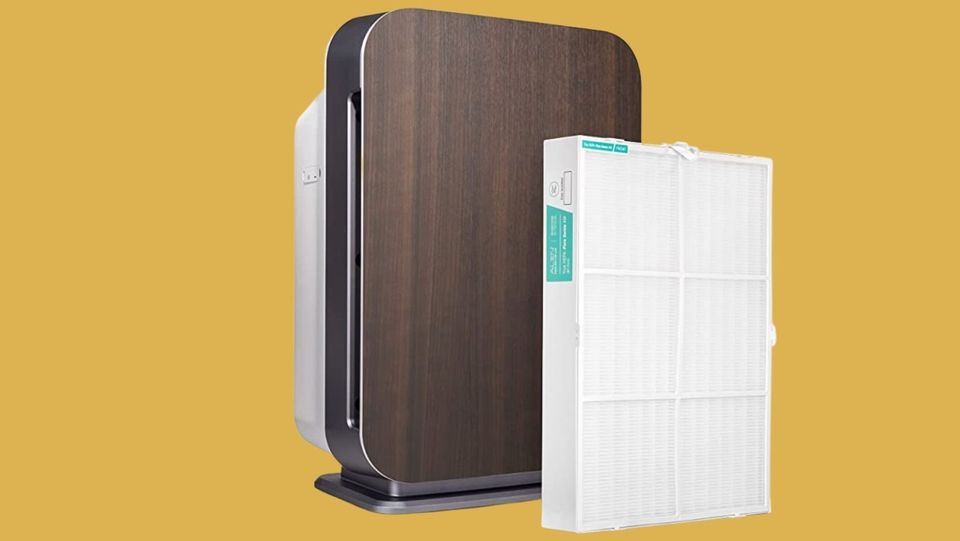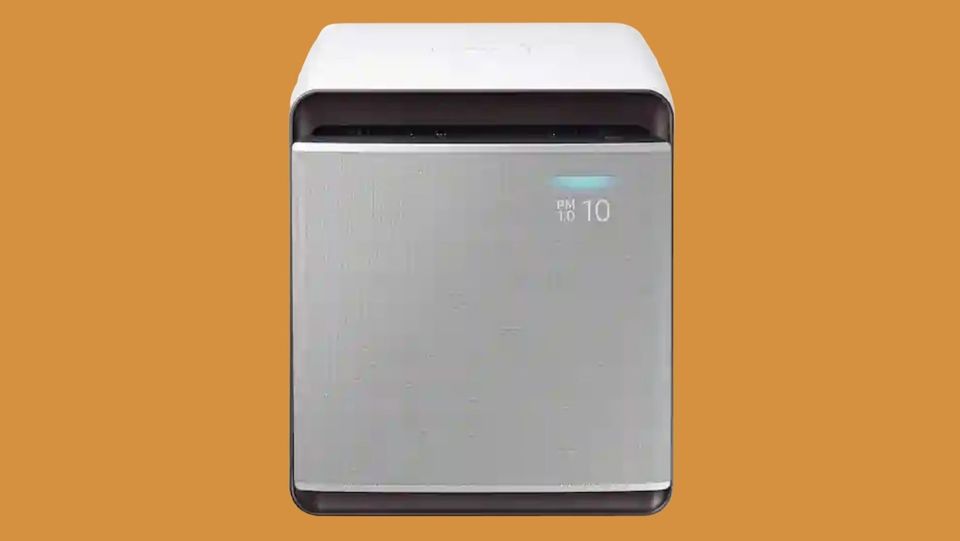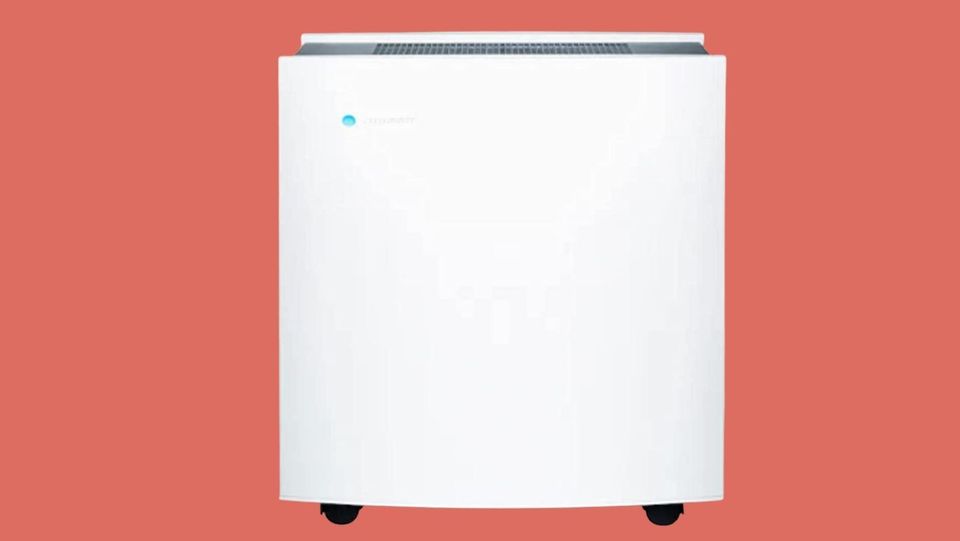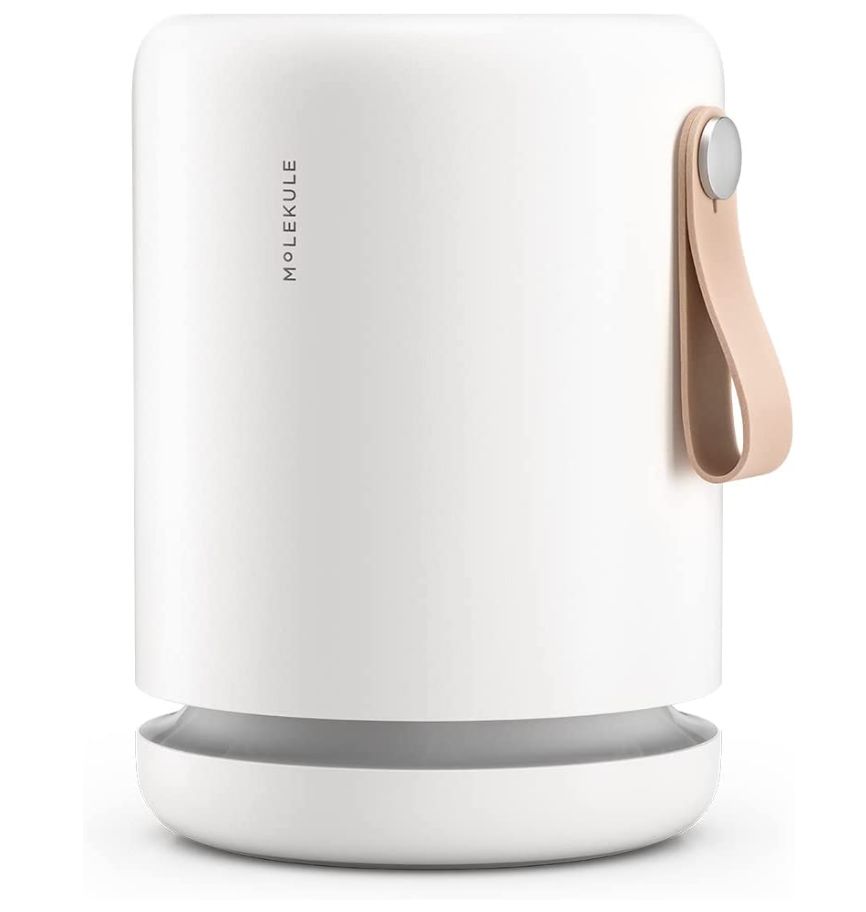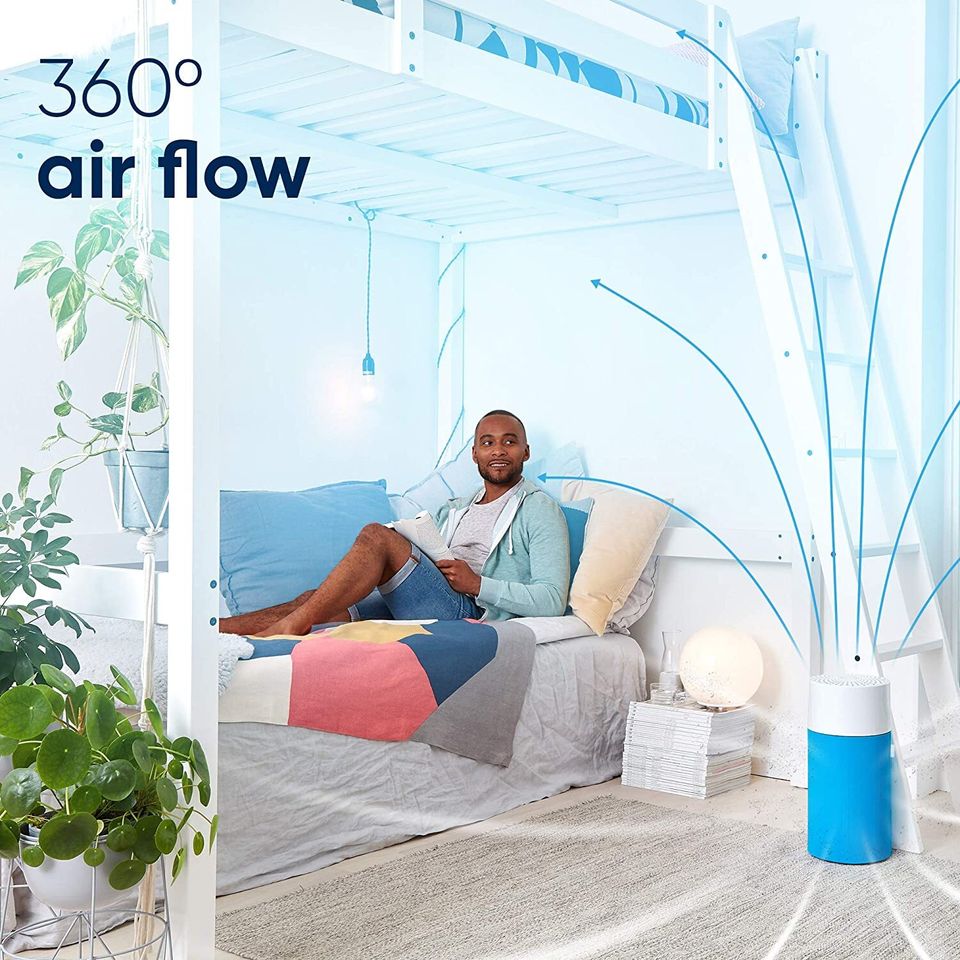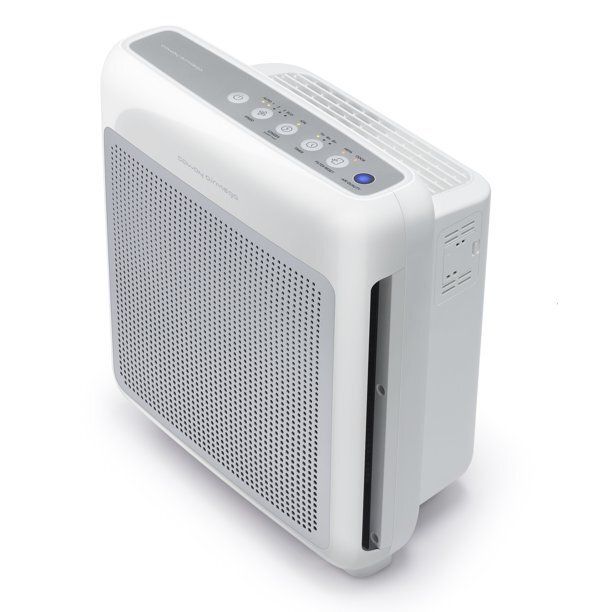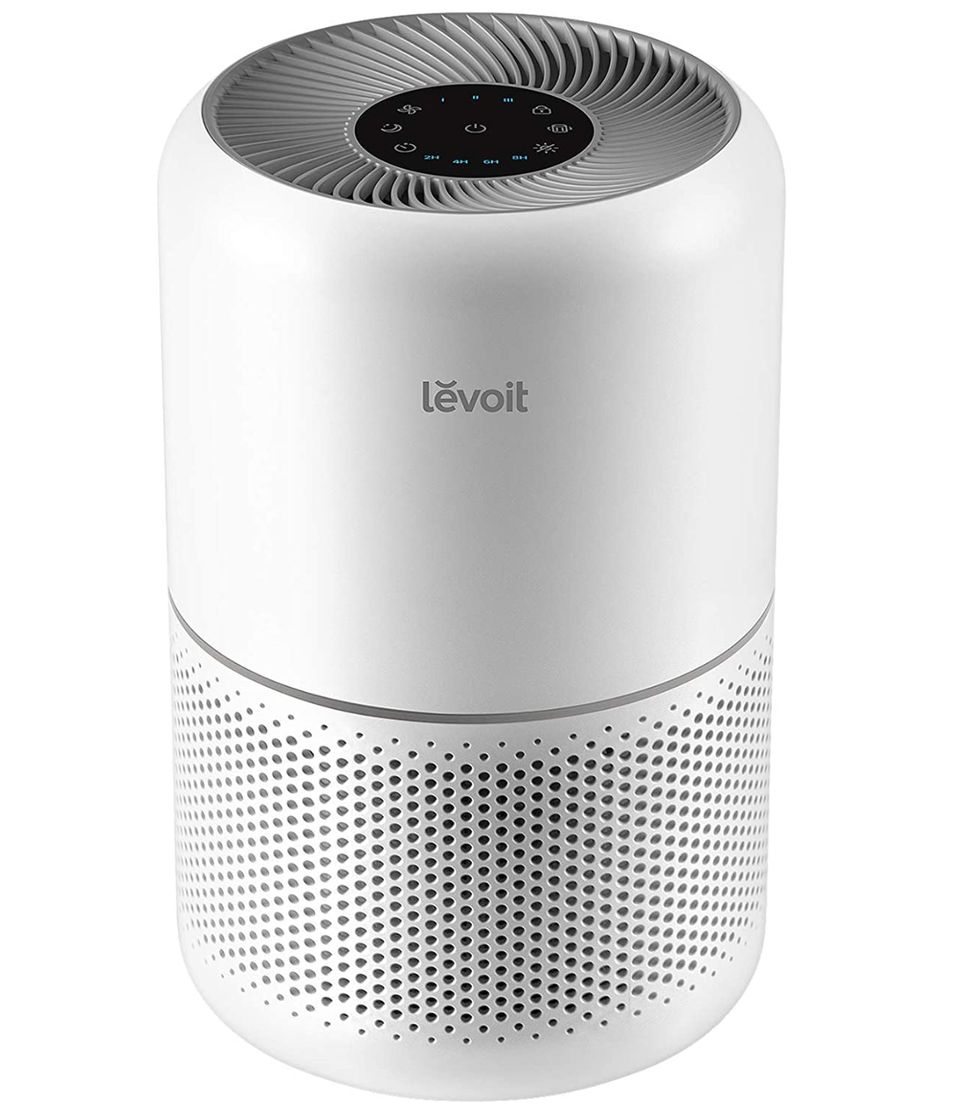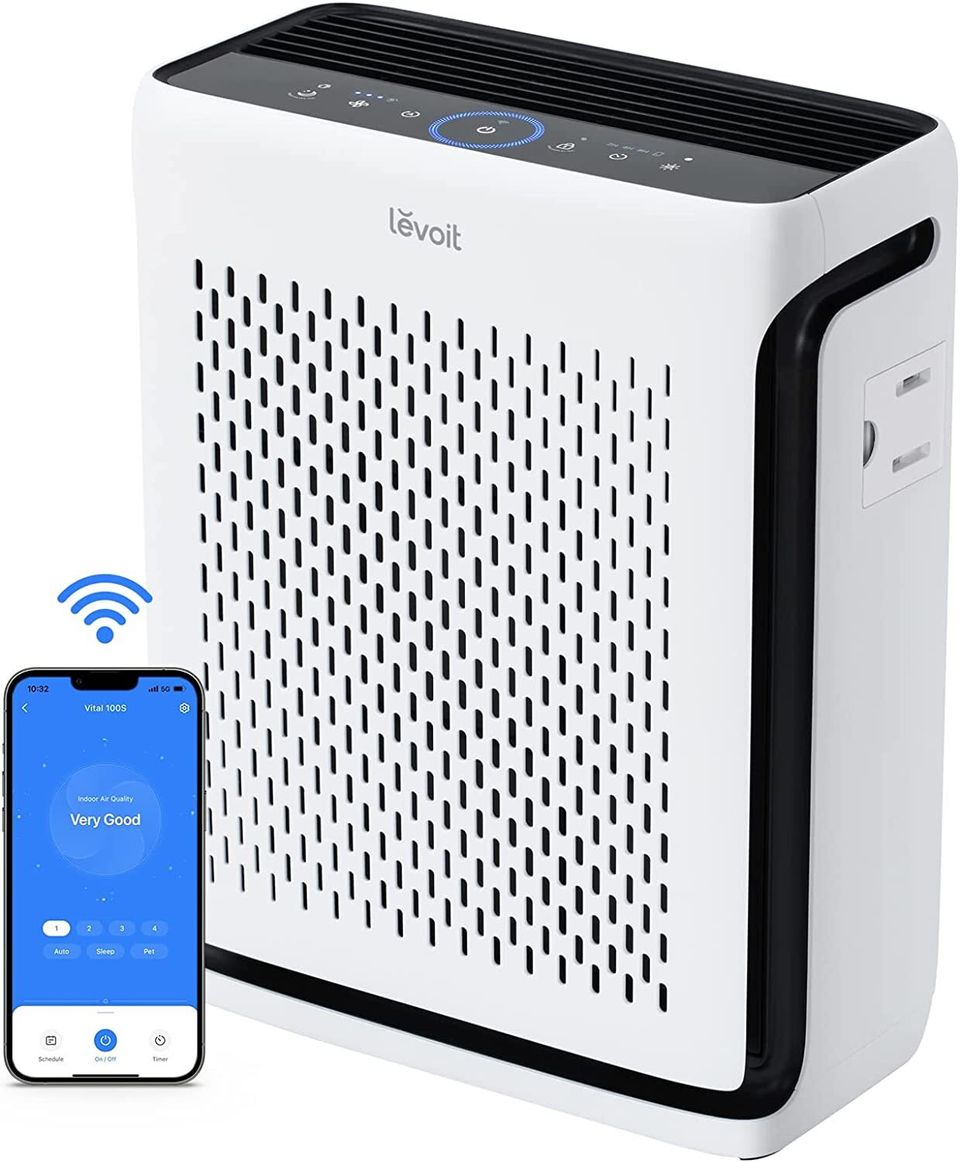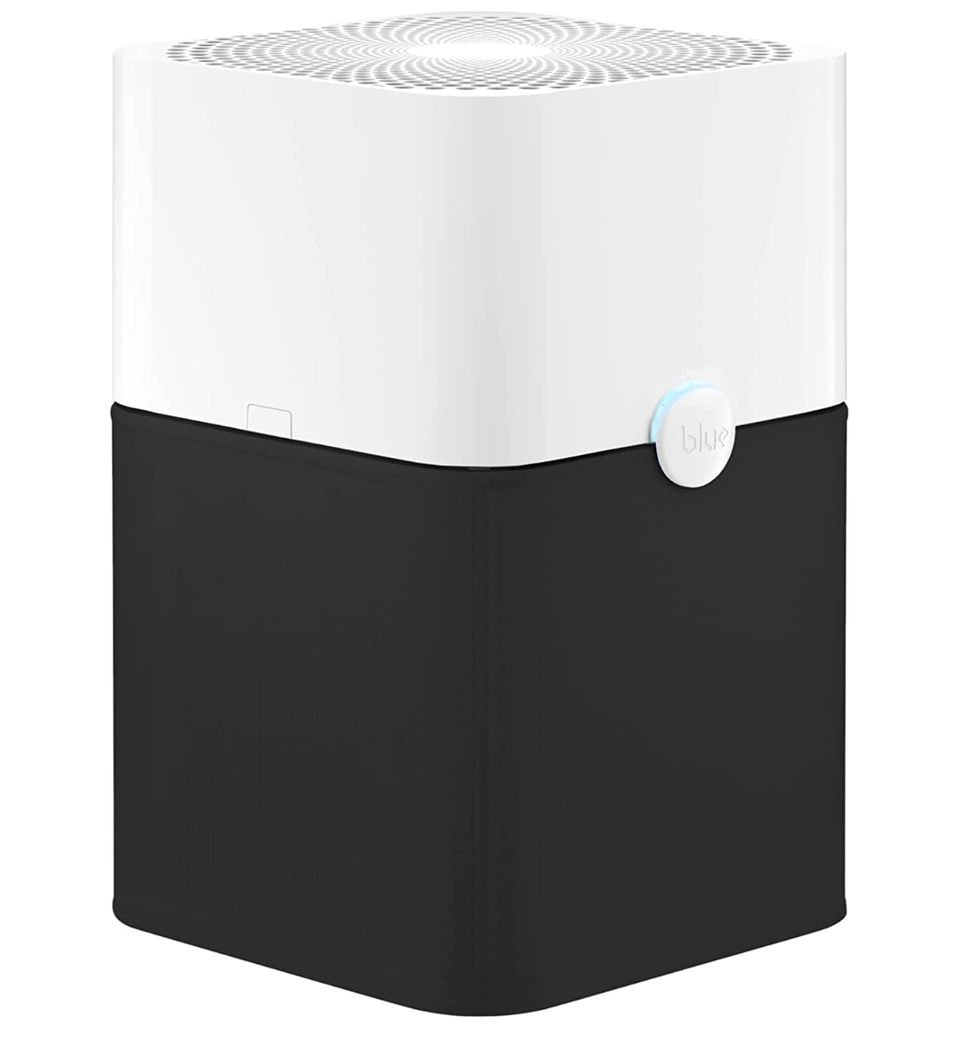News
4 Air Purifiers That Can Help You Breathe Easier Indoors
Given concern surrounding gas stoves and their potential for nitrogen dioxide exposure and the recent changes to air quality in some parts of the country thanks to an increase in wildfires, you may be feeling extra-conscious of the air quality in your home.
Personally, prior to moving to Los Angeles, I had been fortunate enough to never think twice about the quality of air that I was breathing. Now, as I look out my window at the layer of smog that descends on the city and the gas stove in my kitchen, I find myself very concerned about the kinds of pollutants that are coming into my space, the potential sources of contaminants that already exist in my home and the long-term effects they all may have on my health.
Joyce Baker, a respiratory therapist and member of the American Association for Respiratory Care, said anyone can be at risk for poor air quality — not just people in larger cities like the one I live in.
“Common sources of poor indoor air quality are smoking/vaping, mold, leaks or standing water and fuel-burning appliances, particularly if they are not properly vented,” she said, adding that household items like paints, pesticides and certain chemicals can also contribute.
“Poor indoor air quality can be two to five times more polluted than outdoors because of the lack of fresh air, circulation and ventilation,” Baker said, citing an assessment from the Environmental Protection Agency.
The potential risks associated with lower air quality can range from breathing difficulties to a reduced ability to fight off respiratory infections, said Zara M. Patel, the director of endoscopic skull base surgery and an associate professor of otolaryngology at Stanford University.
“Exposure to lower air quality over a long period of time has been shown to play a role in the development of multiple upper and lower airway disease states, including chronic sinusitis and asthma,” Patel said. But shorter periods of exposure can pose risks as well, she said, such as “inflammation, mucus production, and swelling of the tissues of the nose, the sinuses, and the bronchi.”
In some rare cases, Baker said, such exposure can even increase a person’s risk of heart disease or cancer.
Some homes may already be equipped with an HVAC filtration system, but Baker said portable filtration options like air purifiers may be a useful added layer of protection ― particularly for people highly susceptible to allergens or conditions like asthma. She warned, however, that they are by no means a permanent replacement for prescribed medications or for addressing the cause of poor indoor air.
The main question on everyone’s mind seems to be whether air purifiers can catch and filter out airborne particles such as SARS-CoV-2, the virus that causes COVID-19. Baker said that a purifier “can reduce airborne contaminates in the home or confined spaces” when used properly, but that you shouldn’t rely on it completely. She advised that people follow recommendations from the Centers for Disease Control and Prevention.
What should you look for in an air purifier?
Both Baker and Patel had a few guidelines for choosing a system that can safely and effectively capture pollutants and recirculate cleaner air inside your home. The first one is the Clean Air Delivery Rate.
“The higher the rating, the more particles the air purifier will remove and the larger the area it can serve,” Baker said.
Factors such as higher fan speeds, carbon filters with the ability to remove airborne gases, particle size and the square footage of the area that you intend to purify are also important to consider.
Baker didn’t personally endorse any particular air purifier model, but she said she often tells families to look at Consumer Reports to see how well a purifier was tested and reviewed.
In line with Baker’s advice, we created the following list of air purifiers by choosing the four highest-rated options on Consumer Reports and cross-referencing their specs with the EPA’s guide for a safe and effective air filtration system. If you are experiencing symptoms of poor air quality or just want the added benefit of a purification system, see below.
The best affordable option
The Blueair Blue Pure 211+ air purifier
Scoring 85 on Consumer Reports, the Blueair Blue Pure 211+ is an excellent and reasonably priced purifier that’s suitable for spaces of up to 540 square feet. It has a CADR of 350. Using an activated carbon filter similar to the model above, this slightly more compact option scored high on its ability to effectively capture all particle sizes, particularly dust, smoke and allergens.
Pros: Relatively affordable. Contains a second machine-washable filter for capturing large particles. Energy efficient. Produces no detectable ozone emissions. Has a filter change and wash indicator.
Cons: Fairly loud to operate at the lowest speed. Relatively high costs (around $46.99) for filters that last six to eight months.
The best-rated option for entire apartments
The Alen BreatheSmart 75i Pure air purifier
With a score of 91 on Consumer Reports, the Alen BreatheSmart 75i Pure was the highest-rated air purifier and had an excellent score in particle-capturing ability, including smoke and dust removal. It has five different fan speeds that can filter up to 350 cubic feet per minute at its highest function. The wood-paneled, upright design helps for optimal performance (and won’t clash with living spaces) while the CADR lands at a solid 347. According to the EPA guidelines and the California Air Resources Board, this electric purifier also emits 30 times less ozone (a potential lung irritant) than what the group considers to be an acceptable level. If you have an apartment or larger space, Alen BreatheSmart might be a good choice because it can filter a space of 1,300 square feet using a true medical-grade HEPA carbon filter. The B-7 filter lasts between 12 to 15 months and can be easily cleaned between replacements. You can find replacement filters at Amazon for $129.
Pros: Relatively low annual cost due to energy efficiency and a yearly filter replacement. Fairly quiet to run on all fan speeds. Has a built-in indicator that tells you when to replace the filter, plus an automatically adjusting sensor that shows you the quality of the air.
Cons: The price. It’s certainly an investment.
A highly rated choice for medium-sized rooms
The Samsung Cube Smart air purifier
Coming in second with an overall score of 90 on Consumer Reports is the stackable and voice-controlled Cube Smart purifier by Samsung. It has a CADR of 200 and the ability to cover a 310-square-foot space. It was rated 5 out of 5 for its particle-removing capabilities, including pollutants like smoke, dust, dander and pollen. This model also has three speeds and uses a three-layer true carbon HEPA filter that lasts up to one year and can trap toxic gasses and odors. You can get replacement filters at Amazon for $54.99.
Pros: Relatively energy efficient compared to non-Energy Star-qualified options. Air-quality sensor that monitors and provides in the moment feedback about particles in the room. Acceptable ozone emission level.
Cons: Slightly louder noise on highest operating speed. Slightly lower CADR than other models.
A well-rated choice for extra-large rooms
The Blueair Classic 605 air purifier
Consumer Reports gave the WiFi-enabled Blueair Classic 605 air purifier an overall score of 88 and recognized it as one of the best options for its dust- and smoke-capturing ability. Using a dual-protected and highly porous coconut-based carbon filter, this model captures the full spectrum of particle sizes and has three different fan speeds to filter the air nearly five times in an hour. It’s suitable for rooms up to 775 square feet, has a CADR of 350 and would be a great option for individuals with allergy sensitivities because of the Blueair’s ability to capture biological pollutants such as mold and dander.
Pros: Fixed on rolling casters to make moving from room to room simple. A more eco-conscious option. Quiet when running on the lowest setting. Energy efficient. Has an indicator to let you know when it’s time to change the filter.
Cons: Very noisy when running at its highest speed. Relatively high filter cost, with each filter lasting about six months (or more, depending on use). (A replacement set of three costs $79.99.)
For additional air purifier options, take a look at the highest-rated HEPA air purifiers on Amazon.
A mini purifier
Molekule’s mini air purifier at Amazon is ideal for smaller spaces like studio apartments, nurseries and home offices. It traps and destroys particles, allergens, mold, viruses and bacteria without making a ruckus. It’s whisper quiet, auto-adjusts the fan speed and has a filter status indicator so you know when you need to change the filter. This little beauty is also voice-operated and Alexa compatible, is energy efficient and can be enabled through the Molekule app. The vegan leather handle adds a touch of elegance and makes it even more portable and convenient.
Promising review: “Purchased this Air Purifier because it is FDA approved for killing viruses, but really found it to be so much more than just that. The automated monitoring of air quality and speed adjustment to compensate means you can just turn on the device and not think about it. If you are looking for white noise maker, just turn this on high and it does a great job at that. Finally, the 6 month filter is easy to replace and the app tells you when it’s time to do so. No more carbon vs HEPA replacements to track on different cycles, this is a once every 6 month single filter change.” — J.Goke
A whisper-quiet Blueair purifier
This cool cylindrical HEPA air purifier is the perfect size for a bedroom, nursery or kitchen. It captures 99% of common airborne annoyances like smoke, mold, dust, allergens and even virus particles. It comes with two washable pre-filters in black and blue, and you can purchase even more colors for ultimate customization. It has a 4.6-star rating at Amazon and nearly 6,000 five-star reviews.
Promising review: “The proof is in the picture. I just moved into a new apartment and noticed how incredibly dusty my room was. I bought this air purifier and have had it running non-stop since I got it which is about a week now. You can see how much the pre-filter has caught. The inside filter definitely has changed color since I first set it up. Air quality definitely has improved and there is noticeably less dust on my furniture. Very happy with this unit for a bedroom of about 130 square feet.” — Rowrowrowyourboat
Or a highly-rated Coway purifier for larger spaces
If you want to use a HEPA air purifier in an even larger space, the Coway Airmega 200M is a great choice (Wirecutter named it one of the best air purifiers you can buy). It will work in spaces up to 361 square feet, and its auto mode will kick into higher gear when it senses that your air quality is compromised. It’s got three layers of protection: a pre-filter, deodorization filter and True HEPA filter, and in addition to removing 99.999% of 0.01-micron particles, Coway says it also removes 99% of volatile organic compounds and odors. The filters are extremely easy to replace and/or wash when needed.
Promising review: “I bought this to keep the air clean during California wildfire season. It does the job handily in my room, which is about 300 sq ft. (and also very dusty because it is an old house and my room is a converted porch.) Each of my roommates also has one of these air purifiers, so we are all now fans (no pun intended). The setup directions were clear and the setup itself was not challenging. It is extremely easy to see how to operate the device and to understand what it is telling you about air quality.” — Heather
An air purifier with a 360-degree intake
Levoit’s Core 300 HEPA air purifier has an all-around air intake and can clean smoke and allergens from up to 1,095 square feet. It also has a sleep mode for even quieter operation and the option to turn off display lights so they won’t disturb your slumber. The triple-layer filtration system includes a pre-filter, HEPA filter and activated carbon filter. And Amazon buyers love it: The Core 300 has a 4.7-star rating from more than 87,000 users.
Promising review: “This might be the best product I’ve ever owned. I know that sounds dramatic but it’s truly life changing. I have terrible allergies including being allergic to cats which I have two of. This helps tremendously. I put it in the same room as their litter boxes and the smell is completely gone. Like 100% gone. Not just masked or covered up. I’ve tried so many things to help with the smell and nothing has ever worked like this. I actually watched a clump of fur in the air get sucked into the machine… wow!! Super easy to set up, doesn’t take up too much space or look bad, love everything about it! Highly recommended especially if you have allergies and/or pets. If you’re considering getting this, get it!!!! (Also side note, I just used the regular filter that comes with this. I know they have one that’s specifically made to help with pet odors and allergies but so far I find the original one works great for me and my cats but if you have more animals or stronger odors and find the regular doesn’t work, try the pet-specific one?!) (I also use it on the highest setting and it does have a “white noise” sound to it but it doesn’t bother me personally and I don’t find it extremely loud.)” — Amanda
An air purifier you can control from your phone
This Levoit Vital100S will not only clean the air in a space up to 1,110 square feet, but you can see real-time air quality readings, set a timer, create an automated schedule, check filter life and turn it on and off all from a smartphone. The True HEPA filter is joined by a washable pre-filter and an activated carbon filter for optimum efficacy.
Promising review: “We purchased this to have as an all-around home air purifier. We have one in the back of the house and one in the front. Our daughter has allergies and I have asthma and with pets we wanted to do the best we could to keep our home air as clean as possible. We keep ours in auto mode at all times. Generally it stays in a ‘good air quality’ mode and when I pass it I end up putting my hand above the output to make sure it is actually running as you cannot hear it at all. The first night we had it we made BLT’s and as always the bacon smoked up the house a little and the air purifier kicked in and went into ‘bad air quality’ mode and the house was cleared within15 minutes easily. And this was even with the air purifier in the next room over. The quality of it seems really well made, it is easy to manage and the filters are easily accessible which is nice for cleaning the large particle grate. Would definitely recommend this item to others.” — Erin
A customizable BlueAir 211+ for large rooms
With one-button operation, this chic HEPA purifier from BlueAir is both powerful and easy to use. It scored well in performance tests by Consumer Reports, and is suitable for spaces of up to 540 square feet. Like the smaller BlueAir model above, the washable pre-filters come in an array of colors so you can match your mood or decor. A boost mode takes care of pressing air quality issues and the machine is quieter than a whisper on low.
Promising review: “This is the best HEPA filter I’ve ever seen and the quietest! This specific model of the BlueAir Pure HEPA filter recently was rated by a well known consumer product testing website and magazine as being one of only a few recommended and those others are not silent. It is efficient on low, medium, and high fan settings. On low and medium it is truly so quiet I do not hear it operating. It is quieter than my central air unit and purifies the air in a very large room. It comes with two washable pre-filters so one can be washed and air dried while using the other. My only problem now is waiting for my other HEPA filters to die so I feel justified in replacing all of them with more like this one.” — S. Douglas
Read more

